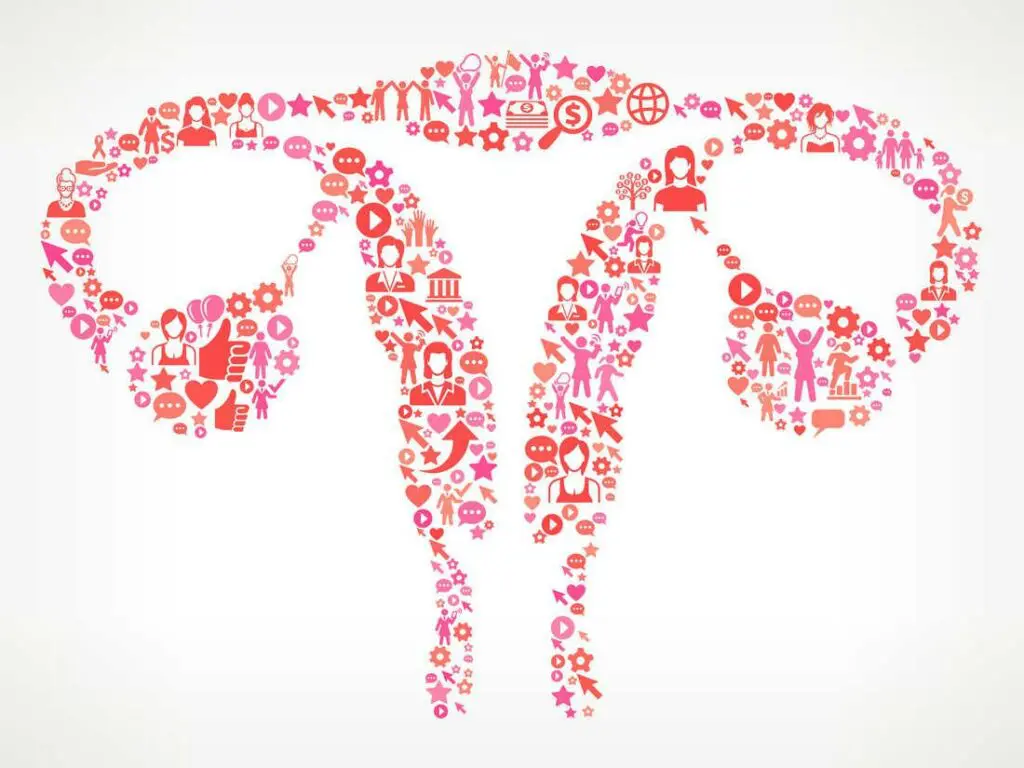Embarking on the path of medical-induced menopause can be a complex and challenging experience for many individuals. Whether it’s due to medical treatments, surgical interventions, or other health considerations, the impact on physical and emotional well-being can be profound. In this blog, we will explore the various aspects of medical-induced menopause, offering insights, coping strategies, and valuable information to empower individuals on this unique journey.
Contents
What Is Medical-Induced Menopause?
 Medical-induced menopause refers to the artificial onset of menopause, a natural biological process in women typically occurring in their late 40s or early 50s. This induction is achieved through medical interventions that disrupt the normal functioning of the ovaries. Unlike natural menopause, medical-induced menopause is often abrupt and can lead to a sudden cessation of menstrual cycles. Also, a rapid decline in reproductive hormones, particularly estrogen and progesterone.
Medical-induced menopause refers to the artificial onset of menopause, a natural biological process in women typically occurring in their late 40s or early 50s. This induction is achieved through medical interventions that disrupt the normal functioning of the ovaries. Unlike natural menopause, medical-induced menopause is often abrupt and can lead to a sudden cessation of menstrual cycles. Also, a rapid decline in reproductive hormones, particularly estrogen and progesterone.
This process can have profound physical and emotional effects, impacting various aspects of a person’s health and well-being. The reasons for inducing menopause medically vary, ranging from treating certain medical conditions. Understanding and managing the consequences of medical-induced menopause requires a holistic approach, addressing both the physiological changes and the potential emotional challenges associated with this transformative phase.
How Do They Medically Induce Menopause?
Medical-induced menopause can be achieved through various interventions that disrupt the normal function of the ovaries and alter hormone levels. The specific method chosen often depends on the underlying medical condition and treatment goals. Here are some common approaches to medically induce menopause:
- Surgical Removal of Ovaries (Oophorectomy): One of the most direct methods involves the surgical removal of the ovaries. This procedure, known as oophorectomy, results in an immediate cessation of ovarian hormone production, leading to menopause.
- Chemotherapy and Radiation Therapy: Cancer treatments such as chemotherapy and radiation can damage or destroy ovarian tissue, impairing its ability to produce hormones. As a consequence, women undergoing these treatments may experience medical-induced menopause.
- Hormonal Interventions: Hormonal medications, such as GnRH agonists (Gonadotropin-Releasing Hormone agonists), can be used to temporarily suppress ovarian function. These medications work by initially stimulating the release of certain hormones. This, desensitizes the pituitary gland, leading to a reduction in estrogen and progesterone production.
- Selective Estrogen Receptor Modulators (SERMs): In some cases, medications like SERMs may be used to block the effects of estrogen. While not directly inducing menopause, these drugs can mimic some aspects of the hormonal changes associated with menopause.
Each method has its considerations and implications, and the choice of approach depends on the individual’s health condition, treatment goals, and overall medical history. It’s crucial for healthcare providers to carefully assess the risks and benefits of each method and work closely with patients to manage the consequences of medical-induced menopause effectively.
How Long Does Medical Menopause Last?
The duration of medical-induced menopause can vary depending on the method used to induce it and the individual’s specific circumstances. Here are some general considerations:
- Temporary Induction
In cases where medical-induced menopause is a side effect of treatments like chemotherapy or the use of GnRH agonists, the menopausal symptoms are often temporary. Once the treatment is completed or discontinued, ovarian function may gradually return, and hormonal balance can be restored. This process may take several weeks to months.
- Surgical Induction
If menopause is induced through surgical removal of the ovaries (oophorectomy), the effects are usually permanent. As the ovaries are no longer present, the hormonal changes associated with menopause persist indefinitely.
- Hormonal Medications
When menopause is induced using hormonal medications like selective estrogen receptor modulators (SERMs), the effects can be reversible upon discontinuation of the medication. However, the specific timeline for the return of normal ovarian function may vary.
It’s important to note that the symptoms of medical-induced menopause, such as hot flashes, mood changes, and vaginal dryness, can persist for an extended period, even if hormonal balance is eventually restored. Individuals experiencing medical-induced menopause should consult with their healthcare provider to understand the expected duration of symptoms based on their unique situation.
How To Manage Medical-Induced Menopause?
 Managing medical-induced menopause involves addressing both the physical and emotional aspects of this transformative phase. Here are some strategies to help individuals cope with the challenges associated with it:
Managing medical-induced menopause involves addressing both the physical and emotional aspects of this transformative phase. Here are some strategies to help individuals cope with the challenges associated with it:
Open Communication with Healthcare Providers
Maintaining open communication with healthcare providers is paramount when managing medical-induced menopause. Regular check-ins and discussions about your symptoms, concerns, and treatment options allow for a collaborative approach to your care. Your healthcare team can offer valuable insights, adjust treatment plans as needed, and provide support throughout the journey. Transparency about your experiences helps them tailor interventions to your unique needs.
Emotional Support and Counseling
The emotional aspects of medical-induced menopause, including mood swings, anxiety, and depression, can be challenging to navigate. Seeking emotional support from friends, family, or support groups can provide a sense of understanding and community. Additionally, counseling or therapy can be valuable in addressing the psychological impact of these changes. A mental health professional can help you develop coping strategies, provide a safe space to express your feelings and offer guidance on managing the emotional challenges associated with this phase.
Lifestyle Adjustments
Adopting lifestyle adjustments is essential for promoting overall health during medical-induced menopause. Regular exercise not only helps manage weight and boost mood but can also contribute to better sleep, which may be disrupted during this period. A balanced diet rich in nutrients supports physical and emotional well-being. Adequate hydration is crucial while limiting the intake of caffeine and alcohol can help mitigate certain menopausal symptoms.
Educational Resources
Staying informed about medical-induced menopause is empowering and enables individuals to actively participate in their healthcare journey. Accessing reputable educational resources, such as articles, books, and online materials from trusted medical sources, provides valuable insights into the physiological changes, potential symptoms, and coping strategies associated with induced menopause. Workshops and support groups can also serve as educational platforms, offering the opportunity to learn from experts and connect with others facing similar experiences.
Self-Care Practices
Prioritizing self-care is essential for managing the physical and emotional toll of medical-induced menopause. Engaging in activities that promote relaxation and reduce stress, such as meditation, yoga, or deep breathing exercises, can have profound effects on mental well-being. Cultivating hobbies and interests that bring joy and fulfillment contributes to a positive mindset. Establishing a self-care routine provides moments of respite amidst the challenges, fostering a sense of control and balance.
Maintain Bone Health
The hormonal changes associated with menopause can impact bone density, making it essential to prioritize bone health. Regular discussions with healthcare providers about bone health assessments and potential interventions, such as calcium and vitamin D supplementation, are crucial. Adequate intake of these nutrients supports bone strength and reduces the risk of osteoporosis. Weight-bearing exercises, such as walking or strength training, further contribute to bone health.
Intimate Health
Changes in sexual health are common during menopause, and addressing these changes is an integral part of managing medical-induced menopause. Open communication with your partner about any physical or emotional changes is essential for maintaining a healthy intimate relationship. Seeking guidance from healthcare providers can help address issues such as vaginal dryness, discomfort, or changes in libido. Using water-based lubricants can alleviate discomfort during sexual activity.
Remember, the journey through medical-induced menopause is unique to each individual. Integrating these strategies into a comprehensive management plan ensures a more holistic and effective approach to navigating the challenges associated with induced menopause.
Is Medically Induced Menopause Worse?
 The perception of whether medically induced menopause is “worse” than natural menopause is subjective and varies among individuals. One notable distinction is the abruptness of the hormonal changes in medical-induced menopause compared to the gradual decline in natural menopause. For some, the sudden onset of symptoms can be more intense and challenging to manage. Additionally, the emotional impact of facing a medical condition that necessitates induced menopause may add an extra layer of stress and complexity.
The perception of whether medically induced menopause is “worse” than natural menopause is subjective and varies among individuals. One notable distinction is the abruptness of the hormonal changes in medical-induced menopause compared to the gradual decline in natural menopause. For some, the sudden onset of symptoms can be more intense and challenging to manage. Additionally, the emotional impact of facing a medical condition that necessitates induced menopause may add an extra layer of stress and complexity.
However, it’s crucial to recognize that natural menopause also comes with its own set of challenges, albeit unfolding over a more extended period, impacting daily life and well-being. Ultimately, the perceived severity of medically induced menopause is highly individualized. Factors such as the specific medical condition requiring intervention, the individual’s overall health, and the support system in place all contribute to the experience. The key lies in acknowledging and addressing the unique aspects of each situation.
Conclusion
In conclusion, managing medical-induced menopause involves a holistic approach that addresses physical and emotional aspects. Open communication with healthcare providers is crucial for personalized care, and effective symptom management, whether through lifestyle adjustments or prescribed medications, plays a key role in improving daily life. Emotional support, educational resources, and self-care practices contribute to a resilient mindset.
Prioritizing bone and intimate health ensures overall well-being. While the experience of medical-induced menopause varies, understanding and adapting to these changes empower individuals to navigate this journey with strength and embrace the possibilities of a new chapter in life. If you are facing menopause related issues, menopause treatment at HerMantra can help. Book your free trial online menopause treatment session now.


